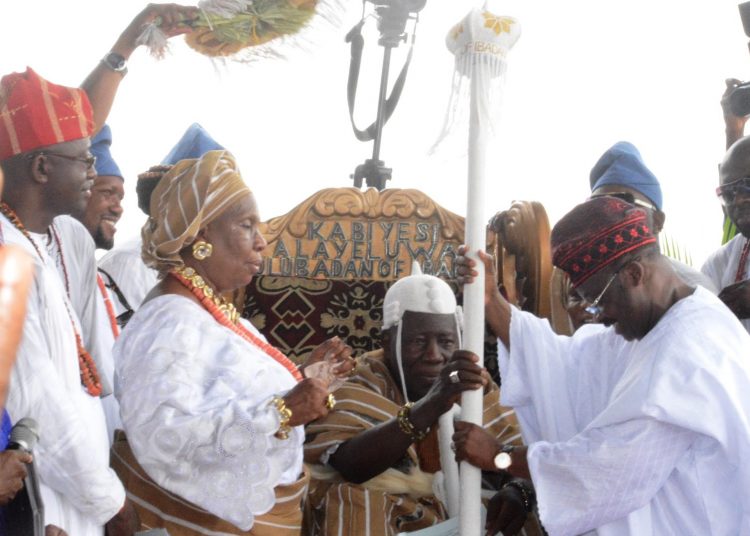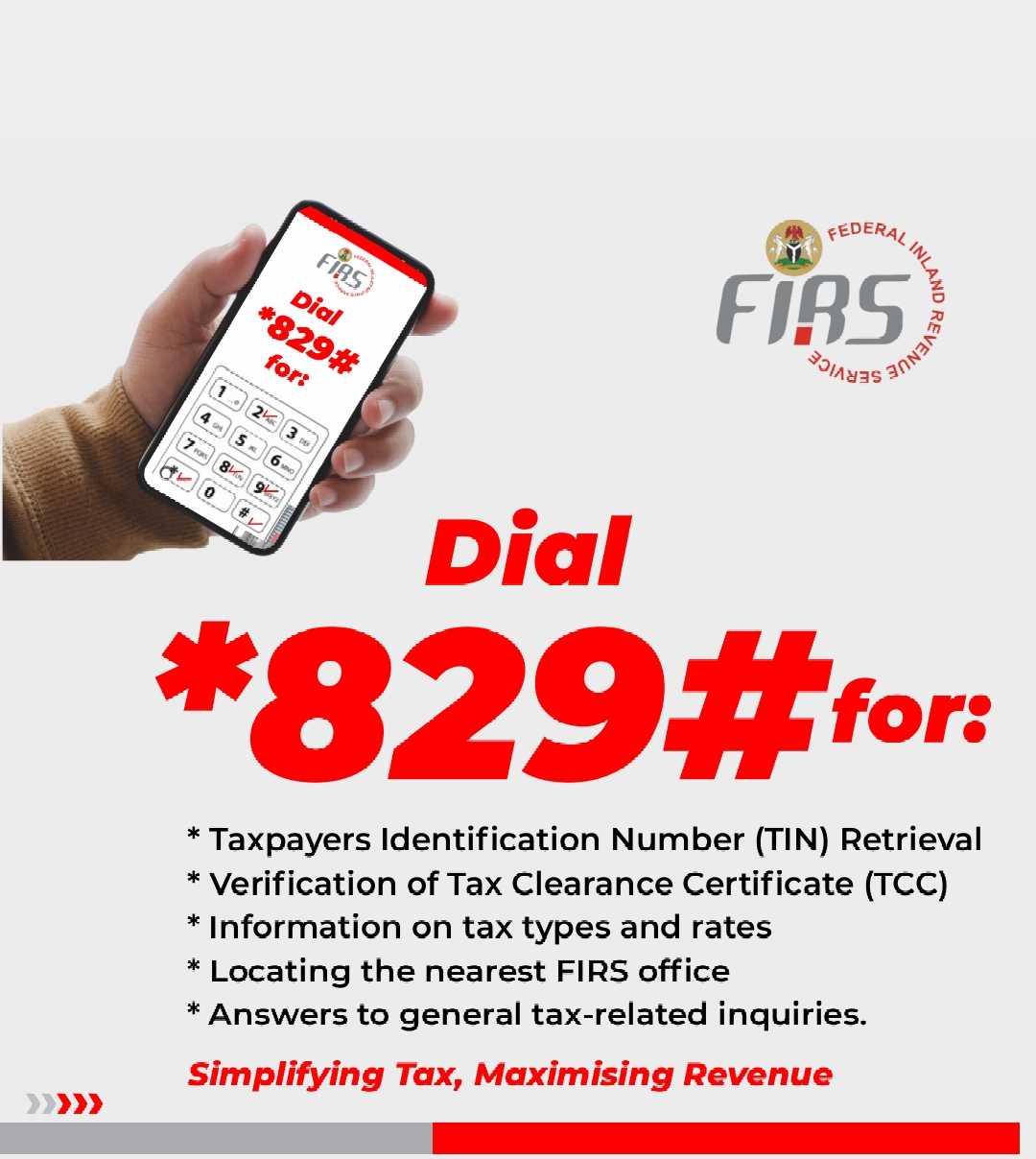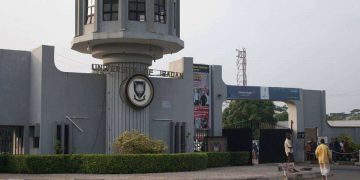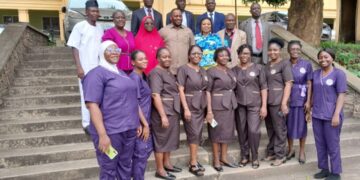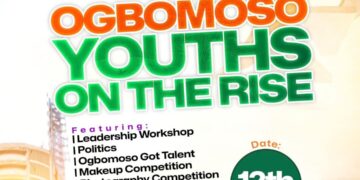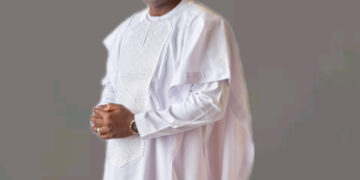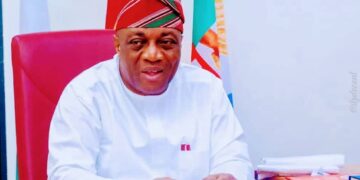Traditional Institutions, Democracy and Development: Role of Oba and His Citizens BY Bamitale Omole
The traditional institutions in Nigeria have gone through thick and thin in the country’s political history from the pre-colonial, through the colonial and to the post-colonial eras. In the words of Biodun Adediran: “From the pre-colonial era, the traditional institutions have been strengthened and weakened, elevated and humiliated, empowered and disempowered by emergent political/ruling class”. Before the coming of the Europeans, the traditional rulers held sway not only as the recognized political rulers of the states and kingdoms in Nigeria but also as the custodians of the people’s history, culture, religions and economy.
The traditional institutions in the pre-colonial Yorubaland had all elements of modern governmental systems and they perfectly suited the social, political and economic situations of the era with the overall goal of the welfare of the generality of the people. The advent of colonial rule and the imposition of Western styles of government not only reduced the powers and relevance of the traditional rulers but also made them subservient to their subjects the educated elite. Since independence in 1960, the political statuses of traditional rulers have gone from bad to worse with far reaching consequences for governance and administration in the country.
In the contemporary international system, most nations strive to adopt democracy as their official form of government. The reason for this is no far-fetched. It has become crystal-clear that democracy is not only the best form of government but also the form of government adopted by most of the developed/advanced countries of the First World. In other words, there appear to be a synergy between democracy and development in the contemporary global system. To this end, majority of the Third World countries of Africa and Asia are currently striving to democratize their political systems and institutions. However, most African countries, including Nigeria, have not been able to achieve sustainable democracy and development because of certain obvious reasons.
In Nigeria, one of the reasons for our inability to achieve sustainable democracy and development is the failure to harness the traditional political institutions. It has also been realized that the failure of the key stakeholders in the democratic process to play their expected roles according to the rules of the game is a factor in the democratic and developmental hurdles in Nigeria. These are in addition to cultural pluralism which “has militated and continues to militate against the development of a homogenous monolithic cultural pattern to which all Nigerians could be expected to conform”. For democracy and development to be sustainable in modern Nigeria, the key stakeholders like the political parties, the politicians, the media, the civil society groups, the electorates, the general public and so on must be well-placed and harnessed. However, the critical roles the traditional political institutions could play in democracy and development have not only been unacknowledged but have also been grossly under-estimated by their relegations to the background in the current democratic dispensations.
Against this background, this paper examines the roles of the traditional rulers and the citizens in the democratic and developmental strides in modern Nigeria with specific references to the stool of the Obas in Yorubaland. The paper is divided into seven parts with the first part introducing the thrust of the paper.
The second part gives brief clarifications of basic concepts like traditional institution, democracy, development and Oba while the third part historicizes the travails of the traditional institutions from the pre-colonial period till the contemporary post-colonial era. The fourth part of the paper identifies some of the necessary credentials that must be possessed by the Oba who wants to be relevant in contemporary time while the fifth part discusses some of the roles the Oba could play in the current efforts of democratize and develop. The sixth part looks at the duties and responsibilities of the citizens in the democratic and developmental quests in contemporary Nigeria. The last part concludes the paper by arguing that the citizens who are central to democratic sustainability are greatly influenced by the traditional institutions and therefore the traditional institutions must be harnessed for positive contributions to democratic and developmental efforts rather than being jettisoned, relegated to the background, abused and disparaged.
I. Brief Definition of Concepts
Four major concepts are central to this paper. There are the concepts of Traditional Institutions/Rulers, The Oba, Democracy and Development.
A. Traditional Institutions/Rulers: Literally, tradition refers to age-long, old, customary and established historic ways of doing something while institution means a system or organization that has existed for a long time among a particular group of people. Tradition refers to custom or belief which is a long established action or pattern of behavior in a community or among a group of people, often one that has been handed down from generations. Traditions presuppose body of customs i.e a body of long-established practices and beliefs viewed as a set of values by a culture. Thus, traditional institutions are those social, economic or political organizations/bodies which derive their power, legitimacy, influence and authority from the traditions of a particular people. This is why Max Weber has rightly categorized all types of authority into three legal/rational, traditional and charismatic. In the pre-colonial Africa, the set of people who control, direct and superintend over traditional institutions are called traditional rulers and their subordinates like provincial chiefs, princes, ward heads, etc. Indeed, the power, authority and legitimacy of traditional rulers were derived from traditions.
This is why the African monarchs were and are still referred to as traditional rulers. From the Nigerian view point, traditional rulers refer to the set of rulers of the various Nigerian peoples and communities before these people were brought together by the British colonial rulers in the establishment of Nigeria. For instance, in modern Nigeria, the categories of traditional rulers include the Mai/Shehu of Borno, the Habe and Emirs rulers in Hausaland, the Oba in Yorubaland, the Attah in Igalaland, the Etsu in Nupeland, the Obi and Eze in igboland, etc. These traditional rulers occupied and still occupy important positions among the peoples of pre-colonial and post-colonial Nigeria. Their positions were/are sanctioned by the traditions, history and culture of their respective peoples who hold them in high esteem and reverence.
B. The Oba: in Yorubaland of modern Nigeria and elsewhere in the word, the Oba is at the topmost hierarchy of the holders of traditional power and authority. An Oba in Yoruba political system was/is ordained by the community’s spiritual/natural authorities, acceptable to and by the community as a role model and unquestionable leader- ka bi e si. An Oba is not only a mere head of a kingdom but he is Awokoise- role model; Oba ba le ileoba le oko- ‘father of all’; IgbakejiOrisa- ‘second only to the gods’. He is generally seen, recognized and acknowledged as the custodian of the people’s history and culture. A Yoruba Oba personifies the kingdom and represents the reincarnation of the past ancestors of the community. The words of an Oba were orders and their actions were divine and sacred. Until the modern period, they were hardly seen in public except during important traditional festivals and religious celebrations. The Oba was/is assisted by a chain of traditional chiefs and loyalists who also form important parts of the traditional institution of government in Yorubaland.
Democracy: Democracy is one of the most difficult concepts to define in political history. This is why scholars often resort to its etymology from two Greek words: demos (the people) and kratein (to rule). It was in this etymological sense that Abraham Lincoln, the 16th President of the United States (1861-1865) defines it popularly as government of the people, by the people and for the people. Scholars of politics and political science as well as practitioners of politics (politicians) have defined democracy in several ways. Few of these definitions will suffice in the piece. Karl Popper defines democracy as opportunity for the people to elect, control and oust their leaders without the need for a revolution in contrast to dictatorship or tyranny. According to Pannock Roland, democracy is the government by the people, where liberty, equality and fraternity are secured to the greatest possible degree and in which human capacities are developed to the utmost, by means including free and full discussion of common problems and interests.
12 In the words of Schmitter and Karl, democracy is a system of governance in which rulers are held accountable for their actions in the public realm by citizens, acting indirectly through the competition and cooperation of their elected representatives.13 From the definitions cited above, one thing is common to all of them. This is the centrality of people, citizens or electorates as they are various called. The message from this is that democracy is people-cent red, anything short of this is not democracy.
It is premised on the above elements that l define democracy in this piece as a governmental arrangement established, nurtured and upheld by the people for the benefit of the generality of them and which they can remove or dismantle at will if it fails to meet their intended benefits. The power in a democracy should belong to the people and they should be able to wield it the way they wish through. Their votes and voices. Where the people’s votes and voices are not relevant and not reckoned with, then what exists is not democracy but at best aristocracy or autocracy. The essence of democracy is people’s Welfare and well-being and it is fundamentally rooted in the proposition that the political authority is anchored in the will of the people.
C. Development: The term development connotes different things to different categories of people –economists, psychologists, sociologists, political scientists, natural scientists, historians, capitalists, the masses and a host of others. Is a many-sided process. in literal terms, development describes process of changing and becoming larger, stronger or more impressive, successful or advanced, or of causing somebody or something to change in this way. The term development is used in this paper to mean increased skill and capacity, greater freedom, creativity, self-discipline, responsibility and material well-being of the generality of the people. Development is more encompassing than mere economic growth which indicates ordinary increase in the production of goods and services in a country. Development is the process which results in the transformation of social-cultural, economic and political structures in a manner which improves the capacity of the society to fulfill its aspirations. In order words, development refers to changes that result to positive benefits to the generality of the citizens and other residents of a country/community/town. It is the ability of a country/town to improve the standard of living, security and welfare of its people.
II. The Oba in Yoruba Political History: Between Tradition and Modernity, Continuity and Change
As an institution that has survived despite its travails, the dynamism of the chieftaincy institution in Nigeria cannot be over-emphasized. Beyond attesting to its dynamism, the changing role, power and perception of the institution in different dispensations are clear manifestations of its resilience. Thus, from being at the centre of authority in the pre-colonial period, traditional rulers have been empowered and disempowered at different times, accommodated or excluded, depending on the interests at stake and incorporated, manipulated, hoodwinked or humiliated, depending on the dispensations, circumstances or even the level or extent of relationship between chieftaincy title holders and leaders of modern government.
As an institution with a very long history, the Obaship remains a prominent feature of the Yoruba political organization. Of particular significance was the Oduduwa era with its centralization of monarchical power and influence, and the institution of beaded crown, Ade Ileke, which remain an essential insignia or paraphernalia of official, an important symbol of royal authority. Beyond becoming a reference point in the history of Obaship institution in Yorubaland, the Oduduwa phenomenon has also become a basis for the legitimization of monarchical authority with almost all Yoruba kingdoms, both princely/primogenital, war camps/settlements and commercial/newer settlements laying claim to direct or indirect descent from Oduduwa, the acclaimed Yoruba ancestor.
The aura of myth built around the Obaship in Yorubaland, obviously a legacy of the Oduduwa revolution, has not only sustained the institution but it also became a basis for the tremendous power and influence wielded by Yoruba Oba particularly in pre-colonial Yorubaland. The vestiges of such influence are still noticeable in modern times despite the moderating influences on monarchy even in the pre-colonial era such as the Mole, Oro and Egungun cult in Ile Ife, the Oyomesi in Oyo, Ogboni cult in Abeokuta, the Osugbo Cult in Ijebu among others, the Oba still wielded tremendous power. This explains the reference to then as AlaseEkejiOrisa (second in Command to the deity) in Ile-Ife and many other Yoruba kingdoms, and the popularization of the Ooni as the Alase Orisa (a deity personified) in Ile-Ife in contemporary times. The elaborate ritual processes and initiation involved in their installation, obviously meant to confer the status of a deity on them is pertinent but it also explains their subjects’ perception about the transformation that they were expected to undergo in the course of their reigns (which would indeed make a deity out of them).
In underlining the sacrosanct position in which the traditional rulers were held, Lloyd sees the Yoruba Oba as a sacred king. Beyond being a direct descendant of the original founder of his town, the Oba was a man whom the myths describe usually as one of the sons of Oduduwa, the progenitor of the Yoruba people. Given his perception as the personification of the town, it is often said that without the Oba, there could be no town. Importantly, he was the ritual head of the town though not a priest. It was therefore expected that at annual ceremonies, he received blessings of royal ancestors and of the hill spirits guarding the town and conveyed this blessings to his chiefs. Accordingly, it was his duty to provide sacrifices to a host of lesser deities and it was on the proper performance of such rituals that the prosperity of the town was thought to rest.
Pertinent also was the life tenure attached to the reign of traditional rulers. Obviously the longer a ruler reigns, the more entrenched his position and the more consolidated and extensive his influence. The impact of colonialism on monarchy was tremendous. The exigencies of colonial rule particularly the shortage of personnel and the need to raise tax to run the colonial enterprise made the colonial government incorporate the traditional rulers in the Indirect Rule system. The empowerment of kings beyond the traditional limit with their constitution into Sole Native Authority (SNC) as was the case with the Ooni of Ife between 1916 and 1949, distorted the traditional political arrangement and alienated the king lieutenants whose functions were complementary. Similarly, the elevation of the Alaafin over and above his council of chiefs, apart from distorting tradition, greatly empowered the Alaafin. Indeed, as noted by Atanda, the implication of this development was that the Oyomesi neither rules with the Alaafin nor had the chance to act as a check on his power. Rather, members of the Oyomesi had to curry the favour of the Alaafin in order to be able to get remunerative posts as Babakekere (sub-lords) or as native court judges. Although his development increased the prestige of the kings with other attendant benefits, it turned them into puppets in the hand of the colonialists.
This aberration continued until the waning of colonial rule and the advent of self-rule particularly with the 1952 local government reforms undertaken by the Western Regional Government which reduced considerably the powers of the traditional rulers and led to the replacement of Native Authorities by local councils with elected whereas the various constitutional provisions beginning with the Arthur Richards Constitution of 1946 and the Lyttleton Constitution of 1954 accommodated the traditional rulers and gave them a semblance of recognition reminiscent of what obtained in the pre-colonial era, it is clear that evolving modern governmental structures had overshadowed their influence. Not even the advent of party politics made any difference, rather the involvement of traditional rulers as ministers or regional governors though guaranteed them access to patronage and state resources, they were more of hollow ceremonial titles. Interestingly, the position, privileges and influence enjoyed by these traditional rulers depended largely on the prevailing political situation and the side of the divide on which they are. Thus, while some were favoured, some suffered terrible fate.
With the emphasis on the possession of certain personal qualifications by candidates aspiring for Obaship position by different Nigerian communities in contemporary Nigeria such as higher level of education, personal achievements, present or past status in government or private sectors as well as extent of wealth, the stake has been raised. Beyond generating healthy competition among communities, this emphasis is also meant to throw up able and capable rulers equipped with the intelligence and resources needed to attract development to their respective communities. Their changing status notwithstanding, the relevance of traditional rulers as cultural ambassadors as well as advisers on cultural matters will continue to hold sway. So also is their usefulness in settling disputes that have the capabilities to degenerate into serious crises. But for the traditional rulers particularly the Yoruba Oba to be repositioned for greater and more appreciable roles in sustaining liberal democracy and development, certain necessary credentials must be possessed by the royal fathers.
V. Towards Repositioning the Traditional Institutions for Relevance in Democratic Governance and Sustainable Development
As indicated earlier, the traditional institutions have been relegated to the background in modern political system in Nigeria. Not only this, the traditional ruler have been objects of public ridicule and political malfeasance in the hands of political office holders and even at times in the hands of their subjects. In spite of this, the traditional institutions have not given way totally to complete irrelevance and unimportance in modern democracy and development efforts in modern Nigeria. They have continued to be relevant and useful in grassroots political administration and development. While the blame for the non-recognition of the role of traditional rulers in modern politics has been principally placed on the doorsteps of the political class, the fact remains that the conduct of some traditional rulers over the years have also undermined their status and position. In spite of this, there is no gainsaying the fact that traditional rulers particularly the Yoruba Oba have critical roles to play in sustainable democracy and development in modern Nigeria.
To this end, one major question is begging for answers in this regard. This is: What credentials should an Oba possess to live up to expectation of the people and become better prepared for useful role in sustainable democracy and development? Indeed, favourable answers to this would go a long way in repositioning the traditional institutions in Yorubalandfor greater recognitions and enhanced positions in modern governance in Nigeria.
There is no doubt that the personality of the individuals who lead an institution goes a long way to affect the public perceptions of such institutions. Therefore, for the institution of Obaship to regain its lost glory and play its expected role in modern governance with dignity and respect, there are certain relevant credentials which must be possessed by the modern Oba. These include:
• The Oba must be knowledgeable about the historical evolution of the community and the traditional socio-political system: One of the most important and most valuable credentials of an Oba is the ability to master, comprehend and relate the traditions of origin, early and contemporary history of his kingdom well as the workings and principles of the traditional socio-political systems of the people. Today, it is absurd and absolutely unimaginable that some Oba do not have the basic knowledge of the history and politics of their kingdom all in the name of Western civilization. How would such Oba settle disputes involving two or more clans or lineages within the community or respond intelligently to questions relating to the early history and politics of their kingdoms?
• The Oba must follow contemporary developments to be able to explain evolving policies:Complementary to his knowledge of the history, customs, traditions and politics of his kingdom, the Oba must be well-informed and equipped about the current political and socio-economics issues in the community and larger society so that right positions are championed and informed policies are made for the benefit of the people. In other words, the Oba must be educated, literate, enlightened, civilized, dynamic, current, lively and open to new ideas and suggestions. He must not be too rigid, conservative, myopic and parochial if he must be a successful Oba of the 21st Century.
• The Oba must be above board in personal conducts: The Oba must be a respectable dung hill;. The Oba must be seen as the symbols of the people’s past, custodian of their history and past, upholder and preserver of their culture and customs, epitome of cultural norms and values of the society such as truth, discipline, courage and responsibility, etc. He must be humble, courteous, reconciliatory and non-partisan. He must be ‘father of all’ in words, deeds and actions. However, over the years, some Oba in Yorubaland have acted in several most dishonourable ways and these have contributed to negative people’s perception of the institution of Obaship in recent time. How do we fathom an Oba beating his wife publicly; an Oba raping a teenager; an Oba cursing his citizens; an Oba taking bribes; an Oba selling community land indiscriminately; and Oba engaging in a host of other heinous acts?
The Oba must show a sympathetic understanding for the traditions, customs and religion of the people: Without sounding fetish or anti-Christ, the Oba must not only be knowledgeable in the history and customs of his people but he must also be sympathetic to the traditional religions, festivals and rites of his kingdom. This is to ensure that he continues to enjoy the respect, obedience and reverence from his people because his authority and power actually come from the traditions of the people. Bud sadly enough, over the years, some traditional rulers have shown total disregard to traditions and customs of their people all in the name of devotion to pristine Islam or Christianity.
• The Oba must have a demonstrable interest in the economic and general welfare of the people: A good Oba must be able to bring development to the generality of the people. He must not place his personal fulfillment and benefit over and above the welfare of his subjects. In contrast, what we have seen or heard in contemporary Yorubaland negates this important credential of an Oba. Some Oba reportedly substituted developmental projects coming to their kingdoms for personal monetary gifts and aggrandizement.
• The Oba must be an Orisa in his own right: This is perhaps the most important traditional credential of an Oba. The Oba must not just be the custodian of the people’s history and culture but he must also be the embodiment of the community’s customs and traditions. It is this quality that will make the Oba play out the expected roles of him as the natural ruler of his people.
• The Oba must be a veritable networking individual: He must be able to use his influence and personality to attract projects and funds for development to his domain. The Oba must be a great mobiliser, a fund-raiser and a development magnet of a sort.
VI. The Role of the Oba in the Consolidation and Sustainability of Democracy and Development
As indicated earlier, the erroneous belief that the traditional institutions have no place or roles in modern democratic governance and development strides has let to its relegation to the background. But this belief system is not only erroneous but is also misleading, baseless, deceptive and counter-productive. But the question can then be asked again: What roles could an Oba play in the modern democratic government and general development of the society? The answers to this question are not far-fetched. The roles of the Oba in the welfare and development of his subjects have not changed from what it used to be in the past. It is only that it has diminished over the years due to the relegation of the Oba to the backgrounds, their non-acknowledgement by the political class and the dishonourable acts of some people who bought their ways onto the throne without the basic credentials identified above.
My argument in this paper is that if the positions of the contemporary Yoruba Oba are properly harnessed in the current democratic dispensations, they could play the following roles, among several others:
· The Oba is the generally acknowledged natural ruler/leader of the people: Due to this position, the Oba commands unfettered loyalty and submission from his subjects. This is because the position of traditional rulers is not only divine but it is based on ritual leadership and political power was seen as sacred trust between the people and the rulers. Therefore, the people submit themselves and are absolutely submissive to the authority of the Oba who in turn is expected to rule for the general good and welfare of the community as a whole, In fact, no ruler or leader in contemporary modern political system has the kind of control and influence possessed by the Oba on the people. This position can be harnessed in modern democratic and development ideals to make the Oba the focal instrument of acquiring the total cooperation, support, acceptance and consent of the general public for government programmes and policies.
· The Oba is the kernel of community/grassroots development: the Oba should be recognized as the kernel of community development since he is closer to the people and enjoys more lasting tenure of office arising from the fact that an Oba holds the position for life except in cases of gross misconduct which could lead to dethronement and other sanctions. This is unlike political office holders who have limited terms of office (maximum of two terms of eight years for executive offices) in Nigeria. The closeness of the Oba to the grassroots and their longer tenure of office make them potent avenues for selling government policies and programmes to the people. This was exactly what the colonial government did in Nigeria through the introduction of the indirect rule system in the early colonial era.
· The Oba as the chief adviser to the elected/appointed political office holders: This responsibility of the Oba is acknowledged in the current democratic dispensation but it has to be given official acknowledgment. As the father to all, the Oba must be recognized as the chief adviser to people in the position of authority as well as people aspiring to attain the positions. Rather than being partisan or biased in favour of the ruling elite, the Oba must be able to live above board and offer useful pieces of advice to the ruling elite and opposition politicians. This is the only way through which the wisdom and experiences of the Oba can be explored by the ruling elite and the would-be ruling elite for the betterment of the society at large.
· Maintenance of public order: The Oba is also better positioned to protect the numbers of the local community and maintain public order in his domain than any other government officer. This is another key area where the colonial government in Nigeria acknowledged and appreciated the political primacy of the traditional institutions in Nigeria. The Policing and security of the local communities during the colonial period was within the purview of the traditional rulers of the affected states with the support and funding of the colonial government. This was the basis of the incorporation of the Dogarai and Yan Doka police in the Native Authorities Police Force (NAPF) in Northern Nigeria and the Akoda police in the Local Government Police Force (LGPF) in the Western Region of Nigeria during the colonial period up to the 1970s. This method can be replicated in modern times through the recognition and reform of community policing under the control and watch of the traditional rulers who have better understanding of, and firmer grip on, the local security challenges and problems as well as effective solutions to them. Therefore, the Oba is naturally made the security officers of his kingdom. This position of the Oba can be harnessed in modern democracy for a more efficient programme of security of life and property at the local level.
· Nomination of people for appointive positions: The Oba knows his kingdom and his subjects more than any other government official. This vantage position naturally gives him the opportunity to know the people who have the right educational and personal credential and who genuinely have the interest of the community at hand and who should be recommended for appointments and entitlements. This should be factored into our democracy by giving the Oba this privilege rather than continue with the present practices where the politicians who are motivated by personal selfish gains exercise enjoy such privileges. In the appointment of Ministers, Commissioners and other appointive officers based on the recommendation of state governors and other elected officers, there have been reports of people who got such appointments to represent states and local government areas but who have never set their feet on such areas let alone made any positive societal contributions to such communities. This kind of ugly situation can be prevented if the Oba is given the prerogatives of making such nominations for appointments.
· Settlement of inter-personal and inter-ethic and communal disputes/conflicts: This is another critical area where the Oba could be very central in democratic consolidation and sustainability. This is due to the fact that conflict is part and parcel of human coexistence but peaceful resolution of conflict is one of the hallmarks of democracy and development. If we adopt the traditional methods of conflict resolution as alternative to the modern judiciary, it would go a long way in improving our current justice system which has not only been over-stretched but also grossly abused. The position here is that the Oba at the centre of traditional justice system could achieve rapid peaceful resolution of inter-personal and communal disputes which have become clog on the wheel of our progress and development. The Obas have been doing this at the local level but this needs to be backed and strengthened by formal governmental authority and recognitions.
· The Oba as the natural representative of the people: The Oba should be the focal person in terms of relating with the people at the grassroots. He should be link between the people and higher authority. As the symbol of his kingdom, the Oba has genuine interest in the development of his community and the welfare of his subjects. He also seeks to protect his subjects and guide them in their inter-personal relationship and conducts.
On a final note, apart from the advisory role given to the traditional institutions in the current democratic dispensation, the Oba should be seen as the coordinator of general community development as he has natural capability to successfully act as adjudicator, mediator, intercessor and facilitator of community projects and programme. In other words, our traditional rulers have been grossly under-utilized given the enormous potentials inherent in their offices, positions and influence. Therefore, rather than go to them and offer them monetary gifts only during the period of electioneering campaigns for support and endorsements, we should according them a pride of place in our development strategies so that we can fully tap their enormous natural potentials and powers.
VII. The Roles of the Citizens in Sustaining Democracy and Development
The citizens are people who have acquired the status of legal nationals of a country either by birth, naturalization, registration, descent, or honours. The citizens are central to the sustenance of democracy and development. They are the agents of the workability; implementation, success or otherwise of any governmental policies and programmes. This is why the citizens have been identified as one of the major stakeholders in the sustainability of democracy and development. Sadly, our political experience in Nigeria has shown that both the government and the citizens have not acknowledged the centrality of the citizens to sustainable democracy and development. However, the fact is that in our bid to sustain democracy and development, the citizens and other legal residents of Nigeria must recognize their importance and the critical roles they need to play. Among others, some of the roles of the citizens in sustaining and consolidating democracy and development in Nigeria include:
• Cooperation with the government: for democracy and development to be sustained, the citizens have a duty to cooperate with the government and carry out their civic and other responsibilities such as voting at elections, registering their births and deaths, etc. They do this by abiding with the laws of the land, doing what is right at all times and refraining from unlawful acts that could lead to chaos and problem in the country.
• Participation in governance: The citizens also have a responsibility of participating in governance through membership of political parties, rendering selfless services, contesting for elective positions and accepting political appointments. The citizens also need to support government policies and programmes and offer constructive criticisms of seemingly unfriendly policies and programmes. By so doing, the government is put on its toes to make people-oriented policies and programmes which would strengthen democracy and aid development.
• Patriotism and loyalty to the country: The citizens are also expected to be extremely patriotic and loyal to the country. This would enable them give total commitment and support to government policies and programmes and prevent them from engaging in acts that are capable of leading to chaotic situations.
• Payment of taxes and other levies: A major responsibility of the citizens is the payment of taxes, tenement rates, water rates, electricity rates and other necessary levies for the sustenance of government.
• Respect for the rights of other citizens: The citizens must not engage in acts that could endanger the lives and property of other citizens. Rather, they should live peacefully and not disturb the peace of other citizens in and around them.
• Abiding by the laws of the land: The citizens must abide by the laws and statutes of the country. They must not commit crime or engage in acts that are tantamount to breach of the constitutions such as bribery, corruption, malpractices, thuggery, etc.
• Assisting the Law Enforcement Agents: Another important duty of the citizens is to assist the law enforcement agents like the army and police to defend the territorial integrity of the nation, maintain internal law and order and track down offenders and criminals. Security of lives and property can only be assured if the citizens who know the nooks and crannies of the local environment cooperate with the security agencies to fish out the bad eggs in the local communities. Other duties of the citizens include answering the calls of the government any time they are called to do any public services. They must also take care of public property, defend the country, obey the laws, sing the national anthems at official occasion, respect the national symbols, among other sundry responsibilities. Significantly, carrying out these and other duties and obligations by the citizens will ensure the stability and orderliness of the state and its survival. It will also aid the consolidation of democracy and enhance societal development
VIII. Conclusions and Reflections
This paper has examined the changing roles of the traditional institutions in modern democracy and development issues with specific emphasis on the continued relevance of the Yoruba Oba in contemporary period. It argued that the advent of colonial rule was a major factor in the changing fortunes of the traditional institutions in Nigeria. The paper also emphasized that, in spite of the relegation of the traditional institutions in the modern governance and politics, they have shown an uncommon resilience which enable them to remain relevant and importance over the years. It is argued in the paper that for democracy and development to be sustained and consolidated, the Yoruba Oba must be recognized and accorded an important place. This is because traditions and history have placed them in an uncommon position that modernity cannot erase. Therefore, the potentials of the Oba towards sustaining and consolidating democracy and development must be explored rather than jettisoned.
Since the citizens who are the major determiners of the success or otherwise of democratic and development programmes are under the traditional influence of the Oba, then the position of the Oba as a potent mobiliser, adviser, mediator, facilitator, adjudicator and nominator should be greatly harnessed. It is therefore recommended that the traditional institutions which are the only remnants of our pre-colonial political system must be preserved, promoted and strengthened through official constitutional recognitions and acknowledgements. In conclusion, if the British who colonized Nigeria and introduced liberal democracy still preserve their traditional institutions by making the Queen of England the Ceremonial Head of State with powers over the British armed forces, then we have no reason to throw our Oba to the dustbin of modern politics and administration. Let me conclude by making a strong affirmation that the traditional institutions particularly the Yoruba Oba are part of the working tools that could make democracy and development sustainable and consolidated in contemporary Yorubaland.
– Being a paper presented at the Ikere-Ekiti coronation lecture on recently by Professor Omole, Vice-Chancellor Obafemi Awolowo University, Ile-Ife.


